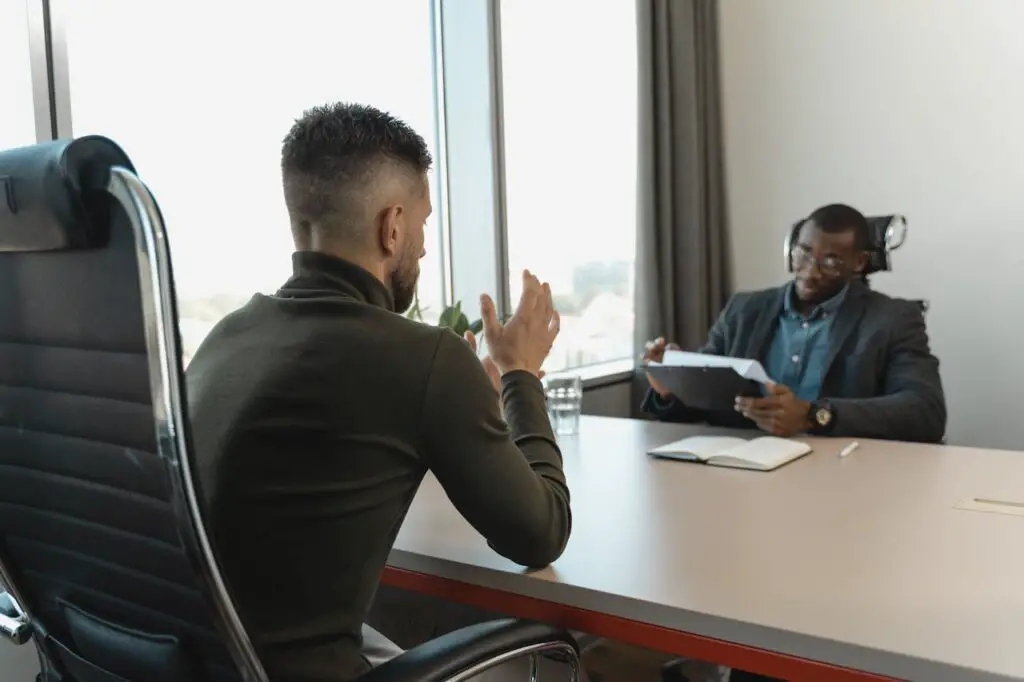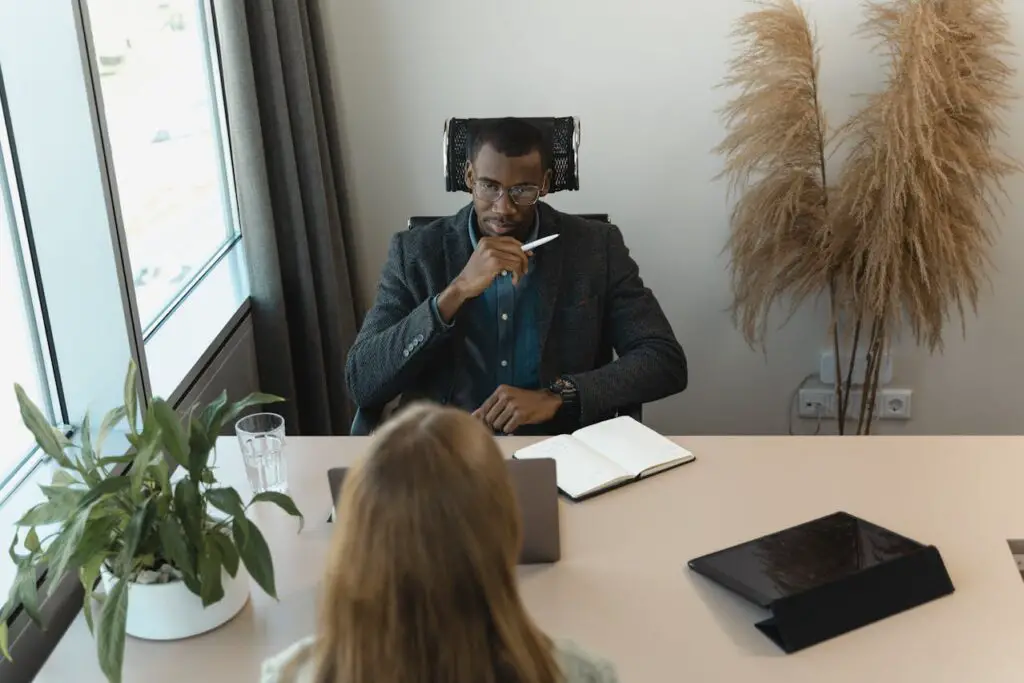NEVER Say These 15 Words in an Interview—Here is What to Say Instead!

A job interview is your chance to make a strong impression, and every word you say matters. The wrong choice of words can make you seem unprepared, unprofessional, or even uninterested. To help you avoid costly mistakes, here are 15 words you should never say in an interview and what to say instead to leave a lasting positive impression.
1. “Honestly”

Using the word “honestly” can make it seem like you were not being truthful before. Instead of saying, “Honestly, I am a great team player,” just say, “I am a great team player.” This removes any implication that you were being dishonest previously and keeps your statement confident and direct.
2. “Whatever”

Saying “whatever” comes off as dismissive and unprofessional, suggesting that you do not care about the conversation. Instead, if you are unsure about something, say, “I am flexible and open to different approaches.” This shows adaptability without sounding indifferent.
3. “Stuff”

The word “stuff” is vague and does not give a clear picture of what you are talking about. Rather than saying, “I handled a lot of stuff at my last job,” be specific by saying, “I managed client accounts, scheduled meetings, and organized marketing campaigns.” This makes your contributions more tangible and impressive.
4. “Um” or “Uh”

Filler words like “um” or “uh” make you sound uncertain and unprepared. Instead of using these words, take a brief pause to collect your thoughts before answering. This makes you sound more confident and articulate.
5. “Like”

Overusing “like” makes you sound less professional and unsure of your thoughts. Instead of saying, “I was, like, responsible for managing the team,” say, “I was responsible for managing the team.” This improves your credibility and keeps your speech polished.
6. “No”

Saying “no” outright can sound negative, especially when responding to questions about your skills or experience. If you lack a particular skill, try saying, “I have not had direct experience with that, but I am eager to learn and adapt quickly.” This shows a positive attitude and willingness to grow.
7. “Weakness”

When asked about your weaknesses, avoid using the word itself. Instead of saying, “My biggest weakness is time management,” reframe it as, “I am actively working on improving my time management skills by using productivity tools and setting clear deadlines.”
8. “Hate”

Using strong negative words like “hate” can make you seem overly critical or difficult to work with. Instead of saying, “I hated working on repetitive tasks,” say, “I prefer roles that challenge me and allow for continuous learning.”
9. “Cannot”

Saying “cannot” limits your potential and makes you seem unwilling to take on challenges. If you are unsure about something, instead of saying, “I cannot do that,” say, “I have not done that before, but I am confident I can learn quickly.”
10. “Boring”

Never describe a previous job, task, or employer as “boring.” This makes you seem disengaged and unmotivated. Instead, if a past role was not stimulating, say, “I enjoyed the experience, but I am looking for a role that offers new challenges and opportunities for growth.”
11. “Salary”

Bringing up salary too early in the interview can make it seem like that is your primary focus. If asked about compensation, instead of saying, “I am looking for a high salary,” say, “I am open to discussing compensation based on the responsibilities and expectations of the role.”
12. “Overqualified”

Calling yourself “overqualified” can make employers worry that you will not stay long in the role. Instead of saying, “I am overqualified for this position,” say, “I bring extensive experience that will allow me to contribute immediately while continuing to learn and grow in this role.”
13. “Fired”

If you were let go from a previous job, avoid saying “fired,” which has a negative connotation. Instead, say, “My previous role ended due to company restructuring, and I am excited about new opportunities where I can apply my skills.”
14. “Lazy”

Even if said in a joking manner, calling yourself or a past team “lazy” reflects poorly on your work ethic. If discussing productivity, instead of saying, “I can be lazy at times,” say, “I focus on efficiency and prioritizing tasks to ensure the best results.”
15. “Mistake”

While it is okay to acknowledge past errors, using the word “mistake” can make you seem unreliable. Instead of saying, “I made a mistake in my last role,” say, “I faced a challenge and learned a valuable lesson that improved my skills moving forward.”
Final Thoughts

A successful interview is about making a strong, positive impression through your words and how you frame your responses. By avoiding these 15 words and using more professional and polished alternatives, you can present yourself as confident, capable, and the ideal candidate for the job. Choose your words wisely, and you will increase your chances of landing that dream role!
Leave a Reply